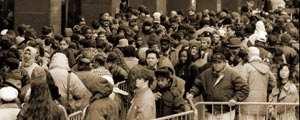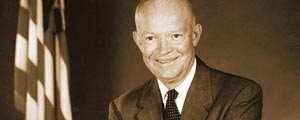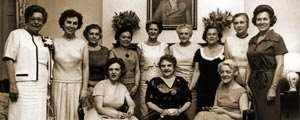Forty-three years ago Monday, Vice President Spiro Agnew became the first vice president to resign since John C. Calhoun in 1832, and the first vice president in history to be convicted of criminal charges. Just before he left office, 62% of Americans familiar with the charges made against Agnew said he should resign, while 22% thought he should not resign.
| Yes | No | No opinion | |||||||||||||||||||||||||||||||||||||||||||||||||||||||||||||||||||||||||||||||||||||||||||||||||
|---|---|---|---|---|---|---|---|---|---|---|---|---|---|---|---|---|---|---|---|---|---|---|---|---|---|---|---|---|---|---|---|---|---|---|---|---|---|---|---|---|---|---|---|---|---|---|---|---|---|---|---|---|---|---|---|---|---|---|---|---|---|---|---|---|---|---|---|---|---|---|---|---|---|---|---|---|---|---|---|---|---|---|---|---|---|---|---|---|---|---|---|---|---|---|---|---|---|---|---|
| % | % | % | |||||||||||||||||||||||||||||||||||||||||||||||||||||||||||||||||||||||||||||||||||||||||||||||||
| October 1973 | 62 | 22 | 16 | ||||||||||||||||||||||||||||||||||||||||||||||||||||||||||||||||||||||||||||||||||||||||||||||||
| Asked of those who answered yes to "Have you heard or read about the charges made against Vice President Agnew?" | |||||||||||||||||||||||||||||||||||||||||||||||||||||||||||||||||||||||||||||||||||||||||||||||||||
| Gallup | |||||||||||||||||||||||||||||||||||||||||||||||||||||||||||||||||||||||||||||||||||||||||||||||||||
Agnew resigned after the U.S. Department of Justice uncovered extensive evidence of political corruption, including allegations that he had accepted bribes not only as governor of Maryland but also as vice president. On Oct. 10, 1973, in exchange for the government dropping the charges of political corruption, Agnew pleaded no contest to federal income tax evasion.
Agnew carved a niche in American life as the voice of the so-called "silent majority." He railed against the media and Vietnam War protesters, earning plaudits from the conservative right. In surveys leading up to his eventual political demise, Gallup found mixed opinions about Agnew among the American public. In a poll conducted in May 1970, as the nation was reeling from the Kent State massacre -- an event Agnew described as "murder" -- Gallup found 49% of Americans approved of Agnew, while 32% disapproved.
From George Gallup's news report: "Agnew says what a lot of people are thinking and are afraid to say," said a 41-year-old Pittsburgh lawyer, interviewed in a nationwide survey, "but I don't think he's got what it takes to be president." In the same survey, 61% said they would not like to see Agnew as president someday, while 19% said they would. Yet as late as April 1973, 35% of GOP voters chose Agnew as their first choice for the Republican nomination in 1976. Perhaps as a sign of things to come, however, the next choice of Republican voters for the nomination was the governor of California, Ronald Reagan.
These data can be found in Gallup Analytics.
Read more from the Gallup Vault.



